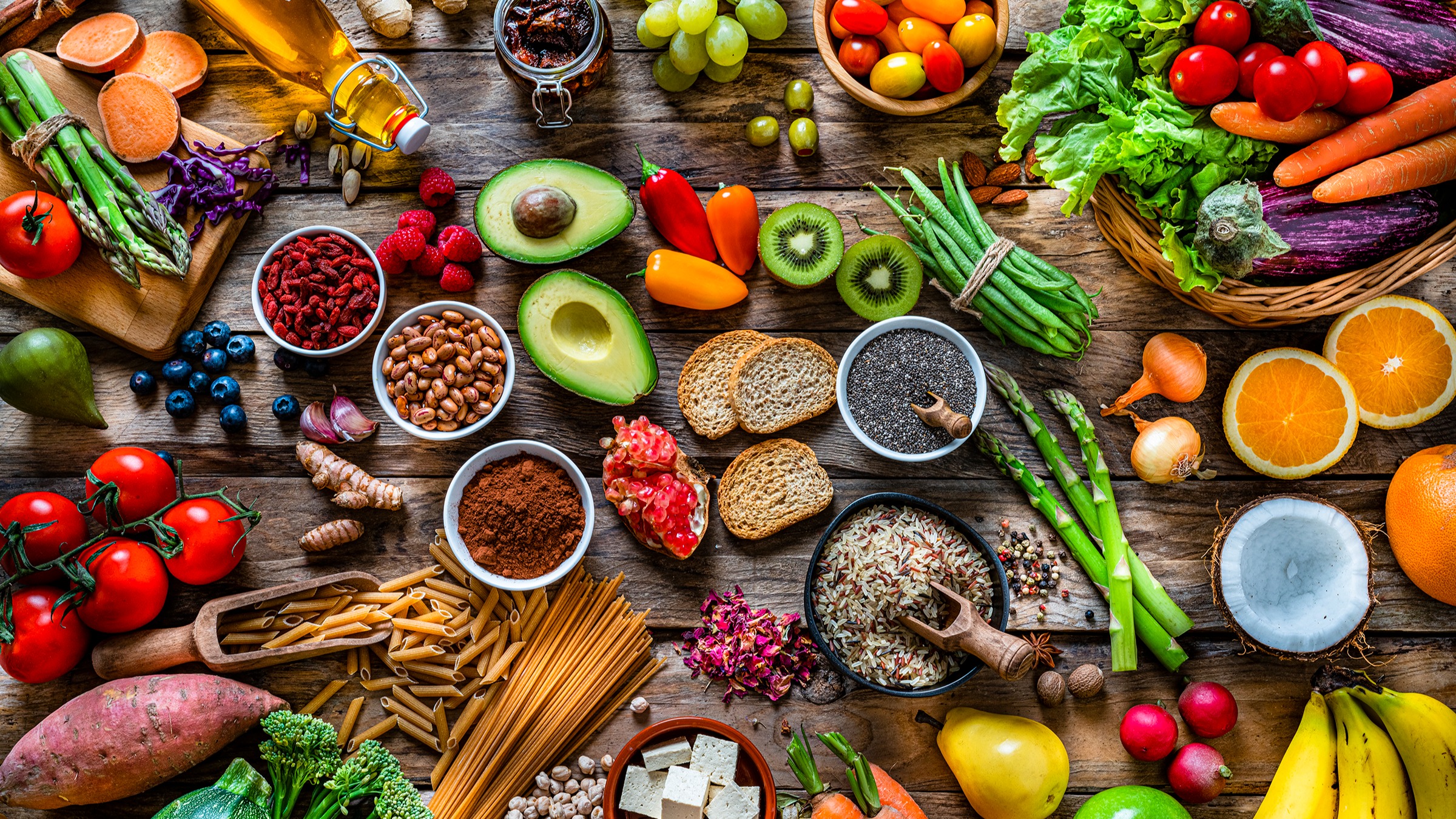Diverse Foods That Help With Fast Bowel Movement
Constipation can disrupt daily life, leaving you feeling bloated and uncomfortable. The good news is that nature offers a wide array of foods—from zesty spices to comforting beverages—that can stimulate bowel movements quickly. By incorporating these options into your diet, you can support smooth digestion without relying on harsh laxatives. Below is a comprehensive guide to over 20 science-backed foods that promote fast bowel movements, including key picks like chili peppers, coffee, and tea.

1. Spicy Stimulants: Chili Peppers
Chili peppers are a fiery solution for slow digestion, all thanks to capsaicin—the compound that gives them their heat. When consumed, capsaicin binds to receptors in the intestinal lining, triggering stronger and faster muscle contractions (peristalsis). These contractions speed up the movement of waste through the colon, reducing the time it takes for stool to pass. A study in the Journal of Gastroenterology and Hepatology found that capsaicin could cut colon transit time by nearly a third in some people.
To avoid stomach irritation, start small: add a pinch of cayenne pepper to soups, or a sliced jalapeño to tacos. If you tolerate it well, a half-cup of chili (with beans for extra fiber) can kickstart bowel movements within 2–4 hours. Those with gastritis or IBS should proceed with caution, as capsaicin may worsen discomfort.
2. Stimulating Beverages: Coffee & Tea
Beverages like coffee and tea aren’t just for energy—they’re also effective at promoting fast bowel movements, thanks to unique compounds that target the digestive system.
Coffee is a well-known natural laxative, and its effects start quickly (often within 30–60 minutes of drinking). The key lies in two components: chlorogenic acid and caffeine. Chlorogenic acid stimulates the release of gastrin, a hormone that triggers colon contractions. Caffeine, meanwhile, activates the muscles in the large intestine, accelerating peristalsis. A 2019 study in Nutrients found that regular coffee drinkers were 60% less likely to experience constipation than non-drinkers.
Opt for black coffee or coffee with a small amount of unsweetened milk—added sugar can slow digestion. Note that decaf coffee also works (though slightly less effectively), as it still contains chlorogenic acid.
Certain teas offer similar benefits to coffee, with gentler effects that make them ideal for sensitive stomachs.
-
Green Tea: Packed with catechins (antioxidants), green tea boosts gut motility by stimulating the vagus nerve, which controls digestive muscle movements. It also contains small amounts of caffeine (about 20–40 mg per cup) to enhance contractions.
-
Peppermint Tea: Peppermint contains menthol, which relaxes the smooth muscles of the intestines, easing tension that can slow waste passage. A 2021 study in Phytomedicine found that peppermint tea improved bowel regularity in adults with mild constipation.
-
Senna Tea: A stronger option, senna contains anthraquinones—compounds that directly irritate the colon lining to trigger contractions. Use senna sparingly (1–2 cups occasionally), as long-term use can weaken intestinal muscles.
3. High-Fiber Fruits (10+ Varieties)
Fiber is the foundation of regular digestion, and these fruits deliver both soluble (softens stool) and insoluble (adds bulk) fiber, plus extra digestive boosters:
-
Prunes: 7–8 prunes provide 7 grams of fiber and sorbitol (a natural osmotic laxative) to draw water into the colon.
-
Apples (with Skin): One medium apple has 4.4 grams of pectin (soluble fiber) to feed gut bacteria.
-
Pears (with Skin): A medium pear offers 5.5 grams of fiber and sorbitol—gentler than prunes for sensitive guts.
-
Papaya: 1 cup of papaya contains papain (a protein-digesting enzyme) and 2.5 grams of fiber.
-
Figs (Fresh/Dried): 3 dried figs have 7.3 grams of fiber, plus magnesium to relax gut muscles.
-
Raspberries: 1 cup has 8 grams of fiber—more than most fruits—with tiny seeds that scrape colon walls.
-
Blackberries: Similar to raspberries, 1 cup provides 7.6 grams of fiber and antioxidants.
-
Kiwi: 2 kiwis deliver actinidin (a digestive enzyme) and 5.2 grams of fiber.
-
Oranges: 1 medium orange has 3.1 grams of fiber and citrus pectin to soften stool.
-
Guava: 1 cup of guava offers 9 grams of fiber—one of the highest fruit fiber counts.
4. Fiber-Packed Vegetables (8+ Varieties)
Vegetables add bulk to stool and support gut health with vitamins and minerals:
-
Spinach: 1 cup cooked has 4.3 grams of fiber and magnesium to relax intestinal muscles.
-
Kale: 1 cup raw has 2.6 grams of fiber and glucosinolates to feed gut bacteria.
-
Broccoli: 1 cup chopped has 2.4 grams of fiber and sulforaphane to reduce gut inflammation.
-
Sweet Potatoes (Skin On): 1 medium has 4 grams of fiber and vitamin A to maintain intestinal lining health.
-
Brussels Sprouts: 1 cup cooked has 3.8 grams of fiber and inulin (a prebiotic).
-
Zucchini: 1 cup sliced has 1 gram of fiber and 95% water to hydrate stool.
-
Carrots (Raw): 1 cup has 3.5 grams of fiber—chewing raw carrots also stimulates digestion.
-
Asparagus: 1 cup cooked has 2.8 grams of fiber and inulin to boost gut motility.
5. Whole Grains & Legumes (7+ Varieties)
Refined grains worsen constipation, but these options keep fiber intact:
-
Oats: ½ cup rolled oats has 4 grams of beta-glucan (soluble fiber) to form a stool-softening gel.
-
Quinoa: 1 cup cooked has 5 grams of fiber and complete protein.
-
Barley: 1 cup cooked has 6 grams of beta-glucan and B vitamins for digestive enzymes.
-
Brown Rice: 1 cup cooked has 3.5 grams of fiber (vs. 0.6 grams in white rice).
-
Lentils: 1 cup cooked has 15.6 grams of fiber—one of the highest legume counts.
-
Chickpeas: 1 cup cooked has 12.5 grams of fiber and resistant starch (a prebiotic).
-
Black Beans: 1 cup cooked has 15 grams of fiber and iron to support gut function.
6. Nuts, Seeds & Fermented Foods (6+ Varieties)
These small but powerful foods boost fiber and gut health:
-
Chia Seeds: 1 tbsp has 5.3 grams of fiber—forms a gel in liquid to soften stool.
-
Flaxseeds (Ground): 2 tbsp has 4 grams of fiber and lignans for gut health.
-
Almonds: ¼ cup has 3.5 grams of fiber and magnesium.
-
Pumpkin Seeds: ¼ cup has 2.9 grams of fiber and zinc for gut immunity.
-
Yogurt (Probiotic): 1 cup has live cultures (Lactobacillus) to balance gut bacteria.
-
Kimchi: ½ cup has probiotics and 2.4 grams of fiber—spicy to boost motility.
7. Hydrating Foods (3+ Varieties)
Dehydration hardens stool, so these water-rich options help:
-
Cucumber: 1 cup slices is 96% water and 0.5 grams of fiber.
-
Watermelon: 1 cup is 92% water and lycopene for colon health.
-
Celery: 1 cup chopped is 95% water and 1.6 grams of fiber.
Tips for Best Results
-
Pair Foods: Combine fiber-rich options with hydrating ones (e.g., raspberries + cucumber) or stimulants (e.g., chili + coffee) for faster effects.
-
Stay Hydrated: Drink 8–10 cups of water daily—fiber needs water to work.
-
Avoid Overdoing It: Increase fiber by 2–3 grams daily to prevent bloating.
Final Thoughts
From spicy chili peppers to comforting peppermint tea, there’s no shortage of foods to promote fast bowel movements. By mixing and matching these options—along with light exercise—you can support regular digestion and avoid constipation. Remember, everyone’s gut reacts differently, so experiment to find your perfect combination!







